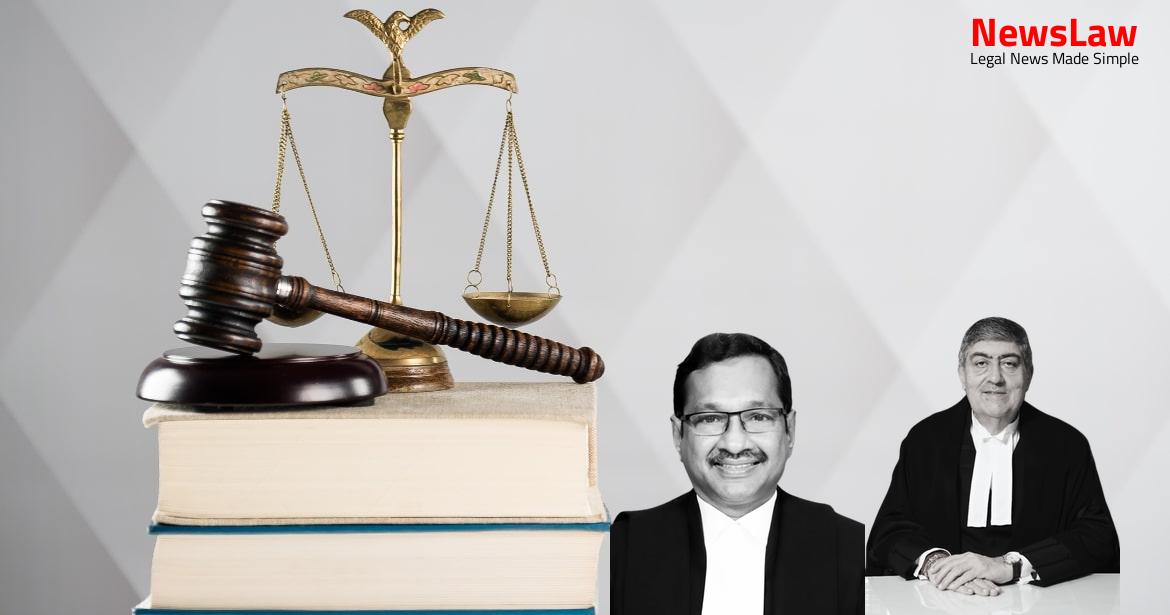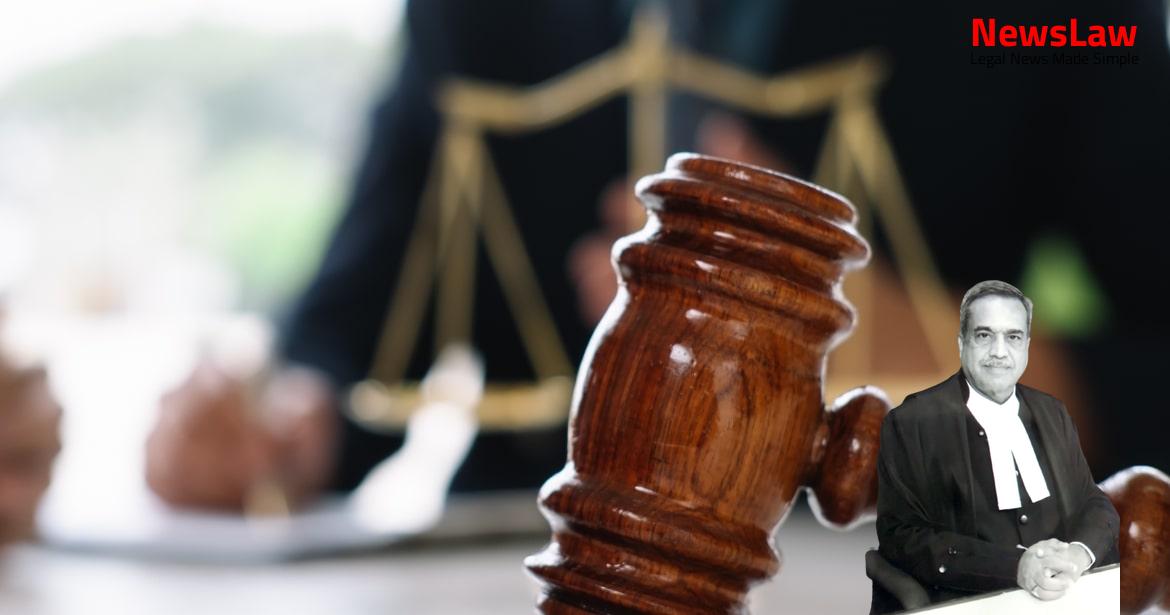out of Khasra No 4/39/1 situated at village Khureji Khas, Abani Radheypuri, Ilaqa Shahdara, Delhi (hereinafter referred to as ‘the Suit Land’) within the limit of Municipal Corporation Delhi vide lease deed dated 06.01.1973 to the respondent-Corporation (Original defendant) for a period of 10 years initially @ monthly rent of Rs. 3 3.1
The appellant/plaintiff filed Suit No 205 of 1988 for recovery of possession in respect of the Suit Land against respondent-Corporation/defendant before the Sub-Judge, Ist Class, Delhi, which was decreed for possession in favour of appellant/plaintiff and against the respondent- Corporation/defendant on 23.03.1990. 3.4
The respondent-Corporation filed objections on the ground that the spot at which the school is built admeasures 1700 square yards and the disputed decretal land cannot be identified. 5 3.6 The Executing Court vide order dated 19.03.1999 dismissed the said applications of the respondent-Corporation on the ground that the respondent-Corporation had not made any serious effort in a span of eight years to acquire the decretal land and that the acquisition of the decretal land can take place even after the same is handed over to the appellant. 3.9 The Executing Court vide its order dated 11.09.2012 while taking into consideration the demarcation reports dismissed the Execution Petition filed by the appellant on the ground that the encroacher(s) upon the land in question were not ‘party to the suit’ and, therefore, the decree could not be executed. Learned senior counsel for the appellant/decree-holder strenuously contended that since admittedly the respondent- Corporation executed a lease deed and remained in possession of the suit land as a tenant, which fact is established in favour of the appellant/decree-holder in the suit as also in the execution proceedings, at various stages, it is wholly inappropriate for the respondent-Corporation to contend that it is not in possession of the suit land.
8 It is next contended that any encroachment on the suit land when it was possessed by the judgment-debtor would not nullify the execution proceedings and it is the duty of the respondent-Corporation, as a local authority, to identify the encroacher, if any, so that effective steps are taken by the Executing Court to deliver physical vacant possession to the decree-holder. In the judgment and decree dated 23.03.1990, the Trial Court categorically held that the respondent-Corporation is the lessee and since the lease has already been determined upon expiry of lease period of 10 years, the respondent- Corporation/defendant is bound to deliver physical vacant possession of the suit land and also to pay the rent and that the appellant/plaintiff is entitled to a decree of ejectment and 10 delivery of vacant possession by the respondent- Corporation/defendant in respect of the suit land as shown red in the site plan in Exhibit P4.
In the course of execution, it was the stand of the respondent-Corporation, at various stages, that grave prejudice would be caused to the students studying in the school building constructed on the suit land, therefore, instead of delivering the possession, it is in the process of acquiring the decretal land, which stand it continued to take from 1994 till March, 1999, at which point the respondent-Corporation’s application not to execute warrant of possession was dismissed by the Executing Court on the ground that it has not made any serious effort to acquire the decretal land for about eight years.
Yet again, on 16.04.2010, the Executing Court observed that till date the respondent-Corporation has not disclosed the fact that as to with whom the suit land presently lies and the Deputy Commissioner of the respondent- Corporation was directed to reply to this query by way of filing an affidavit. In “ Brahmdeo Chaudhary vs Rishikesh Prasad Jaiswal & Anr.”
(1997) 3 SCC 694, this Court has observed that Order XXI of the CPC lays down a complete code for resolving all disputes pertaining to execution of the decree for possession obtained by a decree-holder and whose attempts at executing the said decree meet with rough weather.
In view of the aforesaid settled legal position, therefore, and in the light of the statutory scheme discussed by us earlier it must be held that Respondent 1 decree-holder’s application dated 6-5-1991 praying for issuance of warrant for delivery of possession with the aid of armed force, was in substance for removal of obstruction offered by the appellant 13 and others under Order 21, Rule 97 CPC and had to be adjudicated upon as enjoined by Order 21, Rule 97, sub-rule (2) read with Order 21, Rule 101 and Order 21, Rule 98. On the contrary in the subsequent paragraphs of the judgment the High Court has clearly held that such an application by the objector was not maintainable and his only remedy was to move an application under Order 21, Rule 99 after handing over possession and consideration of objection to delivery of possession by a stranger to the decree at any earlier stage was premature. Consequently the impugned judgment of the High Court as well as the order of the executing court in Civil Execution Case No 25 of 1990 dated 15-2-1996 are quashed and set aside and proceedings are remanded to the Court of Munsif II, Munger to re-decide the application of Respondent 1 decree-holder 14 dated 6-5-1991 by treating it to be one under Order 21, Rule 97 for removal of obstruction of the appellant and after hearing the decree- holder as well as the appellant to adjudicate the claim of the appellant and to pass appropriate orders under Order 21, Rule 97, sub-rule (2) CPC read with Order 21, Rule 98 CPC as indicated in the earlier part of this judgment.’ 12.
Order 21 Rule 36 conceives of immovable property when in occupancy of a tenant or other person not bound by the decree, the court delivers possession by fixing a copy of the warrant in some conspicuous place of the said property and proclaiming to the occupant by beat of drum or other customary mode at some convenient place, the substance of the decree in regard to the property. We find the expression “any person” under sub-clause (1) is used deliberately for widening the scope of power so that the executing court could adjudicate the claim made in any such application under Order 21 Rule 97. In view of the settled legal position, as noted (supra), it was the duty of the Executing Court to issue warrant of possession for effecting physical delivery of the suit land to the decree-holder in terms of suit schedule property and if any resistance is offered by any stranger to the decree, the same be adjudicated upon in accordance with Rules 97 to 101 of Order XXI of the CPC. If this is allowed to happen, every judgment-debtor who is in possession of the 17 immoveable property till the decree is passed, shall hand over possession to a third party to defeat the decree-holder’s right and entitlement to enjoy the fruits of litigation and this may continue indefinitely and no decree for immovable property can be executed. The parties shall bear their own costs.
Case Title: VED KUMARI (DEAD THR. HER LR) DR. VIJAY AGGARWAL Vs. MUNICIPAL CORPORATION OF DELHI THROUGH ITS COMMISSIONER
Case Number: C.A. No.-005409-005410 / 2023



